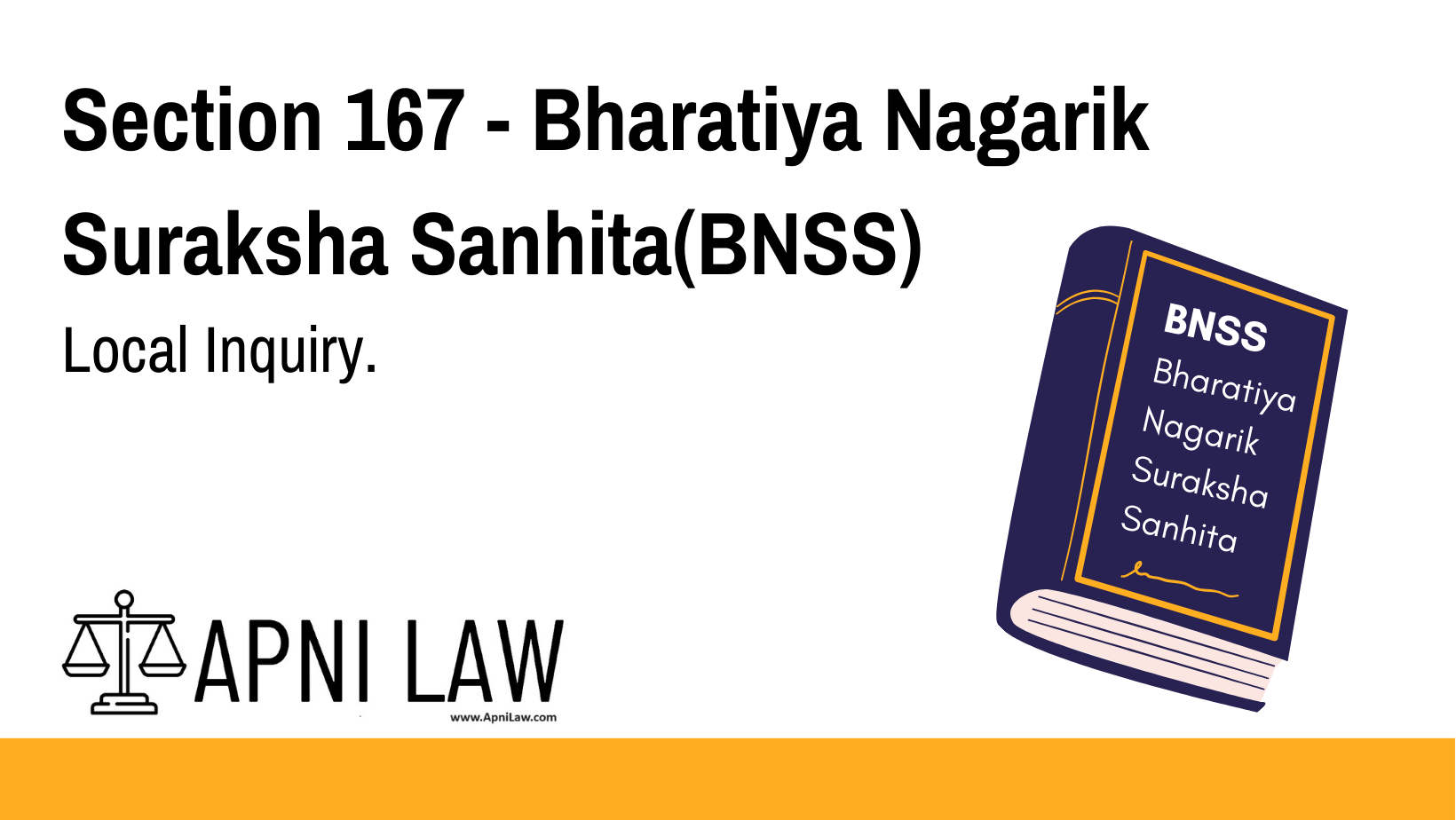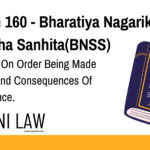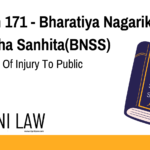Code:
(1) Whenever a local inquiry is necessary for the purposes of section 164,
section 165 or section 166, a District Magistrate or Sub-divisional Magistrate may depute
any Magistrate subordinate to him to make the inquiry, and may furnish him with such
written instructions as may seem necessary for his guidance, and may declare by whom the
whole or any part of the necessary expenses of the inquiry shall be paid.
(2) The report of the person so deputed may be read as evidence in the case.
(3) When any costs have been incurred by any party to a proceeding under
section 164, section 165 or section 166, the Magistrate passing a decision may direct by
whom such costs shall be paid, whether by such party or by any other party to the proceeding,
and whether in whole or in part or proportion and such costs may include any expenses
incurred in respect of witnesses and of advocates’ fees, which the Court may consider
reasonable.
Explanation:
When a local inquiry is deemed necessary under sections 164, 165, or 166, the District Magistrate or Sub-divisional Magistrate can delegate this task to a subordinate Magistrate. The delegating authority can provide written instructions to guide the subordinate Magistrate and determine who bears the expenses of the inquiry. The report submitted by the subordinate Magistrate can be admitted as evidence in the case.
Illustration:
Suppose a witness is unable to travel to the court due to medical reasons, and their testimony is crucial for a case under investigation. The investigating officer may request a local inquiries under section 164 to record the witness’s statement at their location. The District Magistrate can then depute a Magistrate to conduct the inquiry, providing instructions regarding the witness’s condition and the specific details to be recorded. The report of the subordinate Magistrate will then be considered evidence in the case.
Common Questions and Answers:
Q: What is the purpose of local Inquiries under this section?
A: The purpose is to facilitate the recording of evidence, examination of witnesses, or obtaining confessions. This includes situations where it is impractical or impossible for the individuals involved to appear in court. This helps ensure that crucial evidence is gathered and considered in the case.
Q: Who can order local Inquiries ?
A: Only the District Magistrate or the Sub-divisional Magistrate has the authority to order a local inquiry.
Q: Who can conduct local Inquiries?
A: The District Magistrate or Sub-divisional Magistrate can delegate the task to any subordinate Magistrate.
Q: What happens to the report of the subordinate Magistrate?
A: The report is submitted as evidence in the case and can be read by the court.











